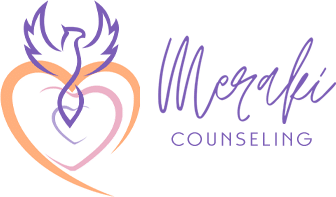“Recovering from high control religion often includes grieving the ways we were taught about the world, people, and how to navigate relationships.”
-Laura Anderson, PhD
What is Truth ?
- Do you feel like you’ve lost who you are in your spiritual and religious beliefs and community?
- Do you feel isolated and disconnected from other relationships within or outside your spiritual or religious community?
- Are you questioning your worth, or struggling with self-hatred, boundary-setting, or compulsive perfectionism?
- Do shame and guilt live unsolicited in your head?
- Are you terrified of death and what will happen afterward?
- Do you struggle with your sexuality or sexual identity in the context of your spiritual or religious beliefs?
Spirituality and religion can deeply enrich our lives, offering a sense of community, safety, belonging, purpose, and connection – authentic human things to deserve and want. However, when spiritual or religious environments affect us negatively, they can overshadow our growth, well-being, and sometimes even our physical safety.
Understanding Spiritual Abuse and Religious Trauma
Loss of Identity: Rigid belief systems can suppress and disempower personal identity. A few examples include controlled sexuality and self-expression, enforced or forbidden beliefs, and the basic idea that we have to be fixed or we will suffer rejection and judgment.
Isolation and Disconnection: Leaving or being ostracized from a religious community can result in profound isolation and loss of social support, causing us to disconnect from our humanity and our sense of self. Additionally, we can become isolated within a religious or spiritual community if we feel like we are not enough (perfect means saved) or being judged by others for “sinful” behavior.
Psychological Distress: Practices like, but not limited to, conversion therapy have been linked to severe psychological effects, including severe depression, self-hatred, anger, anxiety, and suicidal ideation. Additionally, trusted church leaders may use doctrine and rules to dominate and control a group through fear and shame.
Recovery from spiritual abuse and religious trauma means calling back the shattered pieces of ourselves that got lost as we tried to find a place to be loved and belong.
Approach to Healing
- Reclaiming Your Identity and Trust: Rediscovering and connecting with yourself and your intentions will help build bridges to freedom from restrictive and controlling beliefs and survival patterns.
- Rebuilding Community: As you integrate the parts of yourself that have been fragmented, you’ll gain more capacity to build new, supportive networks that respect your individuality and bolster healthy relationships.
- Engaging with Self-Compassion: Once you start to recognize the deep impact of spiritual abuse and religious trauma, you need a safe space to express your pain. If healing is a door, self-compassion is the key. And, BTW, forgiveness can’t be legislated.
- Repairing Your Relationship with Anger: There is a difference between feeling the emotion of anger and acting out on anger. Anger can be a powerful force that protects personal truth and love.
It takes time and happens on your terms. I’ve walked this path, too, and continue to grow and settle in myself. You aren’t alone. As you continue on this path of self-discovery and personal growth, I hold hope that you have the resources you need to reclaim yourself and your spirituality.
Ready to start your journey?
Contact me today for your free connection call.
